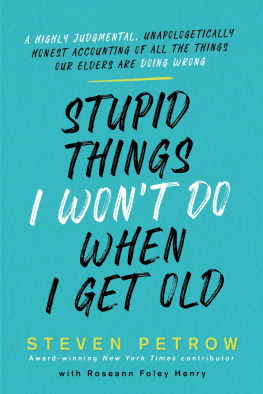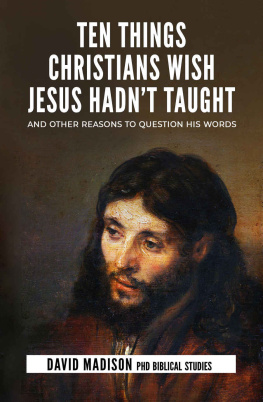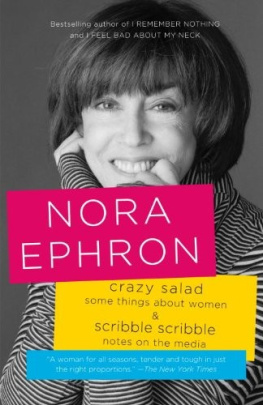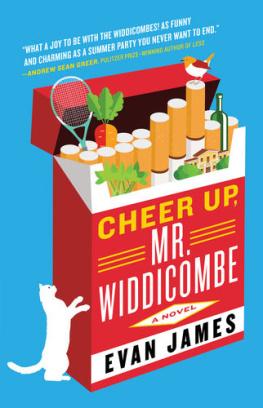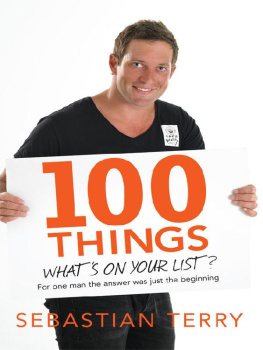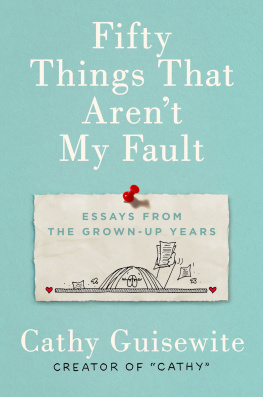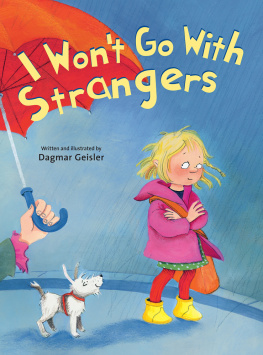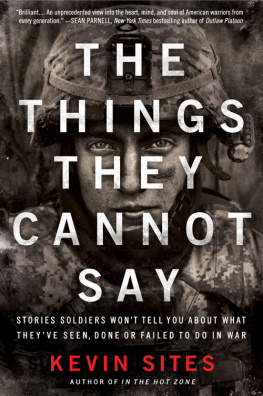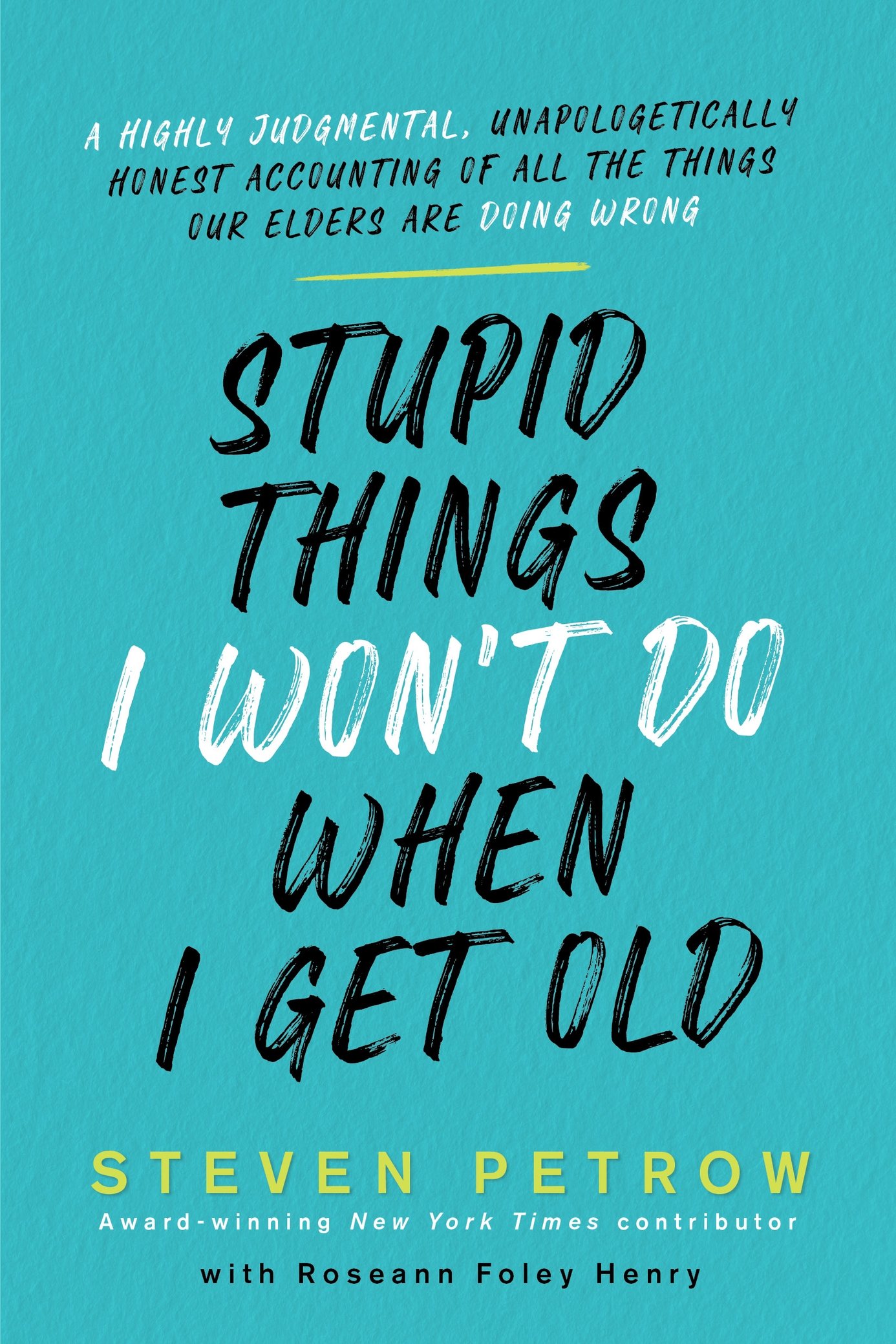Acknowledgments
Ironically, Ill start by thanking my parents, Margot S. and Richard Petrow, who, had they not gotten older and made more than a few mistakes, would have left me no book to write. To paraphrase Frank Sinatra, they did it their way, which is what their parents did before them, and what I imagine Ill do, too.
Ive known Richard Pine, my literary agent, for twenty-five years now. All I can say is this: Hes wise and experienced in his professional line of work, and equally so as an uncredentialed counselor or therapist. And Im grateful for his friendship as we move into the next quarter century together. Many thanks to the rest of the staff at Inkwell Management as well.
Im also grateful to everyone at Kensington Books, especially my editor, Denise Silvestro, who edits with a light touch but with maximum impact. Also sincere thanks to publisher Lynn Cully, who has been a big supporter of the book, publicist Ann Pryor, cover designer Barbara Brown, production editor Arthur Maisel, and copyeditor Karen Krumpak.
The title essay of this book was originally published in The New York Times in a different form but with much the same message (as have a few others). How lucky I am to have had Toby Bilanow as my longtime editor at The New York Times , and to have had our professional relationship turn into a friendship. And a special word of thanks to Mike Winerip, the former Times reporter and editor who gave me my first big break at the Gray Lady, and Greg Brock, now retired from the paper, who was my guardian angel.
Ive also written extensively for the Health/Science section at the Washington Post , notably for editor Margaret Pooh Shapiro, whose kindness is matched only by her skilled editing. (Again, some of the chapters here are adapted from my Post columns.) Thanks also to her partner in crime, Kathy Lally. And I am eternally appreciative to Lena H. Sun, a Post reporter, and more importantly, a friend for four decades.
A few years ago, I wrote a column for The Times and quoted the short poem by Mary Oliver called The Uses of Sorrow, where she wrote about the gifts that came from loss. Over these recent years, Ive been lucky to have many friends and colleagues who are gifts, some shiny and new, others worn and still loved. Some read chapters of this book; others listened to me when I needed an ear; all took care of me when I needed that support. Thank you to:
Amy Barr, Bridget Booher, Steven Burke and Randy Campbell, Wendy and Charlie Couch, Bartow Culp, Vince Errico, Charlotte Eyerman, Julie Fenster, Debbie and Arthur Finn, Robert Goldberg and Terri Flam, Amy Gorely, Debbie Hill and Julia Mack, Eric Marcus, Elizabeth Matheson, Jim May and Rich Cox, Susan Mandell, Jill McCorkle and Tom Rankin, David Payne and Kate Paisley Kennedy, Tori Reynolds and John Beerman, Fred Silverman, Mark and Jennifer Solomon, Phil Spiro, Lee Smith, Peter L. Stein, Cyndi Stivers, Margaret Sullivan, Vicki Threlfall and Molly ONeill, Tess ONeill, Judy Twersky and Jennifer Bristol, Daniel and Laura Wallace, Elizabeth Woodman and Eric Hallman, Kari Wilkerson, Doug and Jerry Zinn.
I am also remembering Denise Kessler, Marion Loeb, Laila Mickler, Barry R. Owen, and Jacqueline Zinn.
Ross von Metzke has been my social media director for many years now and how fortunate am I that he often knows what I think even before I doand that he understands and can explain to me each new iteration of Facebook, Twitter, Instagram, Snap, and whatever else comes along. And that he lives on the West Coast, so it appears to my followers that I am awake 24/7 posting and tweeting. He, too, has long ago become a good and wise friend.
While I take full responsibility for everything in these pages, Roseann Henry is really the organizing force in much of my professional life. On a regular basis, she top edits nearly all of my workquickly, expertly, and with the precision of a surgeon. As cowriter with me on this book, she was my partner, helping to set and then keep me to deadlines, editing my words with aplomb, and contributing in all ways. I fear the day when her kids graduate from college and she wants to spend more time having fun and less time editing my copy. Her only real deficit: she believes she is funnier than I am, which I must confess is true.
An early draft of this book was written at Ucross, a residency program for visual artists, writers, and composers; I was fortunate enough to have a fellowship that provided me with a room to sleep, a studio to write, and the most delicious board, not to mention those majestic Utah views, and a wonderful cohort of other writers. Thanks are also due to the Mesa Refuge residency program in Pt. Reyes Station, California, especially Susan Page Tillett.
Much of the manuscript was written at the Virginia Center for the Creative Arts (VCCA), where Ive been a Fellow many times over and have benefited from the gift of uninterrupted time. I could not be more grateful to Kevin OHalloran, Sheila Gulley Pleasants, Dana Jones, Beatrice Booker, Quinn Graeff, Suny Monk, and Carol OBrienand to the community of writers, visual artists, and composers that Ive come to know and love. For the past three years, Ive had the honor to serve on the VCCA Board of Directors.
As Ive gotten older, Ive learned that there are few things more important than family, and throughout the writing of this booka span that included the deaths of my parentsI have been continually buoyed by my fellow Petrows, Petrow-Cohens, and the one in-law who refused to take our family name. That would include my sister, Julie, and her wife, Maddy; my brother, Jay, and his wife, Nancy; and my three nieces and a nephew, to whom this book is dedicated.
Onward we go!
Steven Petrow
I am honored to have been a part of this book, and grateful to Steven Petrow for giving me the opportunity to work on it. The book is all his, but it was gratifying to be able to add whatever insight, turn of phrase, or humor (mostly humor) I could.
My own father died too young to have made any of the mistakes described in this book, and my mother spent her older years in the fog of Alzheimers disease and is thus (mostly) off the hook for hers. I am still, remarkably, able to identify all the things they did wrong as parents, and determined not to repeat their mistakes. I simply make different ones.
Mostly I am thankful for my two amazing children, who give me a reason to grow old, and to my endlessly patient wife, who is surprisingly willing to take that journey with me. After nearly three decades together, Margaret is still able to overlook most of my mistakes, and happy to point out the ones that actually matter. Best of all, we still make each other laugh every day.
Roseann Henry

